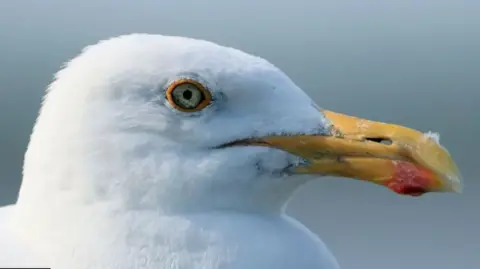Council to spend £10k more on gull control
 Getty Images
Getty ImagesAn extra £10,500 will be spent on controlling gulls in a city next year by a council but two councillors say they have concerns over how the birds are being dealt with.
In 2024 so far, 125 gull nests were removed by Worcester City Council workers and they "gull-proofed" 16 buildings in the city,
Gull control work has focused on “areas of harm” as decided by the authority such as the city centre and also on supporting residents who are affected.
But councillor Adam Scott said he was sad at how the birds were being treated, describing them as endangered, while councillor Richard Udall warned the wrong pests were being targeted as rats were a bigger issue.
On Tuesday, the authority’s environment committee heard there were currently 1,188 breeding pairs of gulls in the city, 58 more pairs than in 2022.
The biggest populations are around the Blackpole Trading Estate, Shire Business Park and the city centre.
The committee agreed an extra £10,500 should be put towards gull control next year.
It will fund gull-proofing homes in areas where gulls have relocated to, nest and egg removal from a vacant BT building in Charles Street and measures in High Street to stop the birds perching there.
Culling the gulls would be illegal as wild birds are legally protected.
'Let’s not forget the traditional enemy'
Councillor Adam Scott said: “ I hope we’re not chasing them away just because of their existence, and that we’re only reacting to complaints.”
While concerns about the targeting of gulls were raised by councillor Richard Udall who worried the actions might be "a little bit disproportionate".
“If we are not careful we’ll take our eye off the ball with the huge problems of other pests in the city and I’m thinking particularly of rats, which do cause more problems for a large number of people," he added.
“They are endemic in the city and we have plenty of residential and commercial properties which are providing harbourage for rats.”
“Let’s not forget the traditional enemy and it’s the rat.”
Mark Cox, of Worcestershire Regulatory Services, said sewer baiting - putting out bait at manhole covers to check for activity - could take place if people spotted rats while residents who met eligibility criteria could get free rat treatments.
This news was gathered by the Local Democracy Reporting Service which covers councils and other public service organisations.
Follow BBC Hereford & Worcester on BBC Sounds, Facebook, X and Instagram.
